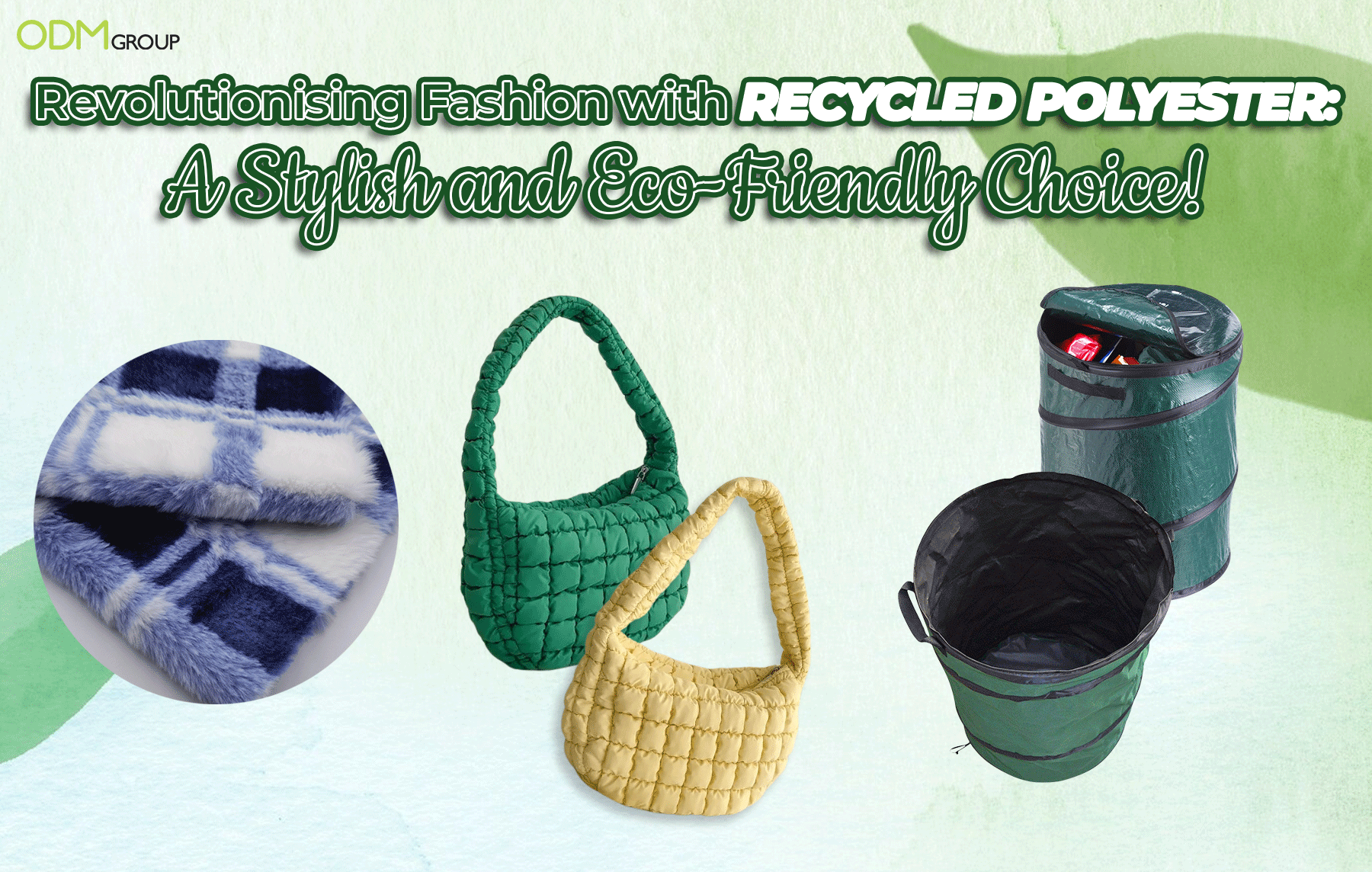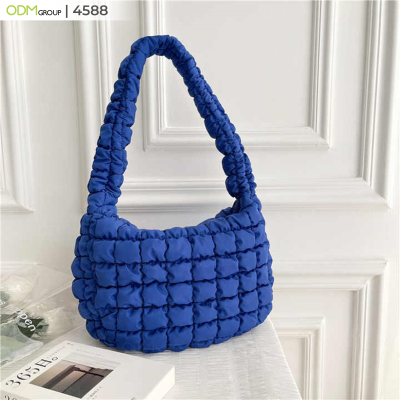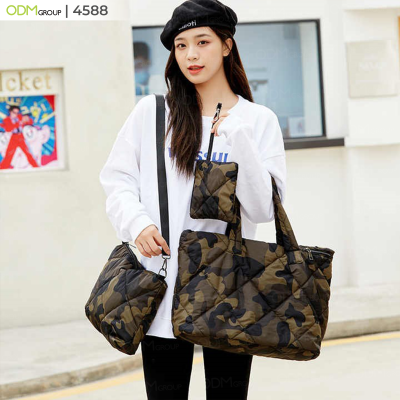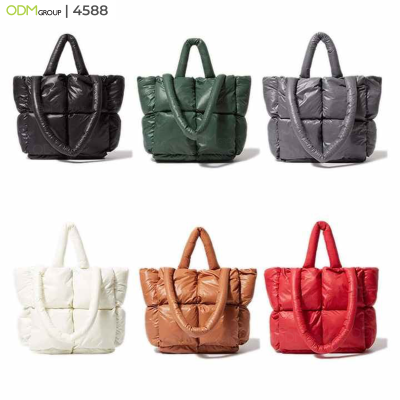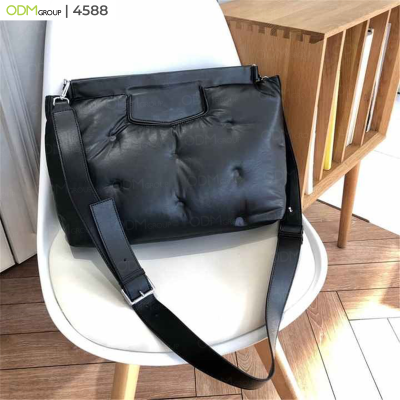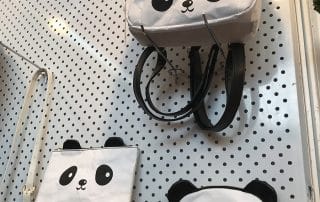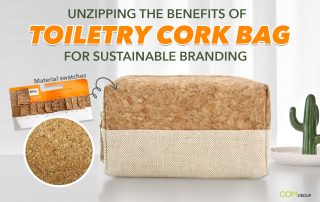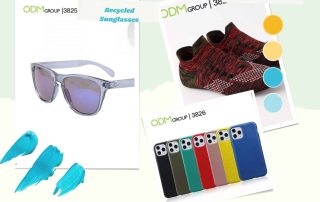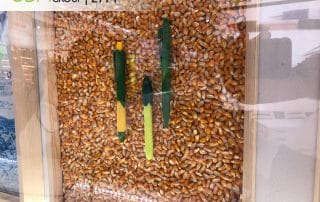In a world where people are becoming more environmentally aware, businesses are actively looking for sustainable practices. One growing trend is the use of upcycled polyester. If you’re interested in eco-friendly polyester, don’t worry. This blog provides a brief, customised guide for businesses and entrepreneurs.
What is Recycled Polyester?
Recycled polyester, a synthetic fibre, comes from post-consumer PET (Polyethylene Terephthalate) bottles or pre-consumer textile waste. This process includes gathering, organising, and cleaning discarded plastics to create a flexible and eco-friendly fabric.
What is Polyethylene Terephthalate (PET)?
A prevalent polyester resin used in clothing fibers, liquid and food containers, and thermoforming. Also, it is combined with glass fiber for engineering resins. Thereby, it is part of the thermoplastic polymer group, specifically within the polyester family.
Green Glam: The Connection Between Recycled Polyester and Polyethylene Terephthalate (PET)
Recycled polyester and Polyethylene Terephthalate (PET) are the same material.
PET, a common polymer, is widely used in plastic production. While, recycled polyester, derived from processed PET products like bottles, is an eco-friendly alternative.
It helps reduce plastic waste and supports a circular material approach. Additionally, these terms are often interchangeable, emphasising the eco-conscious aspect of products made from recycled PET.
The Positives of Recycled Polyester: Five Reasons to Embrace It
Recycled polyester, made by sustainable polyester bottles, represents a big step toward sustainable textile production. With growing environmental awareness, the fashion industry is leaning more toward environmentally friendly materials. This important change not only tackles environmental challenges but also shows the industry’s dedication to adopting greener methods.
-
The Environmental Impact of Recycling Processes
Recycled polyester offers a key benefit with a diminished environmental footprint. Likewise, repurposing plastic waste aids in waste reduction, aligning with sustainability goals. This practice minimises the impact on landfills and oceans.
-
Regulatory Compliance
Brands emphasise adherence to global environmental regulations, showcasing their dedication to compliance and responsible business practices.
-
Conservation of Resources
Eco-friendly polyester’s production significantly conserves water and energy, marking a stark contrast to the resource-intensive process of creating virgin polyester. Research and data underscore this approach’s efficiency, spotlighting notable reductions in carbon emissions. By embracing recycled materials, the textile industry makes a crucial leap towards sustainability, mitigating its environmental footprint through resource conservation.
-
Energy Efficiency
Sustainable polyester requires less energy than producing virgin polyester, helping to reduce carbon emissions. As a result, this alignment with sustainability goals helps businesses reduce their environmental impact.
-
Chemical Treatments
The recycling process involves chemical treatments to break down and reshape polyester. While measures are taken to minimise environmental impact, using chemicals remains a concern.
-
Exploring Sustainable Alternatives
Businesses concerned about the environmental impact of green polyester can explore alternative eco-friendly materials. This may involve considering natural fibres or exploring cutting-edge sustainable fabrics.
-
Waste Generation
The recycling process involves chemical treatments to break down and reshape polyester. While measures are taken to minimise environmental impact, using chemicals remains a concern.
Some businesses, especially those focused on green alternatives, may find this aspect contradictory to their sustainability goals.
-
Cost-Effectiveness
Analysing the economic benefits reveals businesses can save significantly by incorporating recycled materials. This cost-effectiveness, in turn, has positive long-term financial implications for brands and manufacturers that adopt green polyester. Moreover, this strategic shift not only aligns with sustainability goals but also enhances profitability, securing a competitive edge.
-
Market Demand and Brand Image
The rising consumer demand for sustainability significantly influences market trends. Brands that successfully incorporate rPet in various case studies witness positive market responses.
-
Consumer Appeal
Global brands recognise the increasing demand for eco-friendly products. Utilising recycled polyester caters to a growing market of environmentally conscious consumers, enhancing brand appeal.
-
Building a Sustainable Brand Image
Using renewed polyester boosts a brand’s image, linking it to sustainability and environmental responsibility and improving how consumers see it. For example, marketing campaigns or product lines with green polyester strengthen this positive connection.
-
Customer Loyalty and Trust
Exploring the influence of sustainable practices on customer loyalty and trust reveals insights from surveys or studies on consumer behaviour. Furthermore, emphasising transparency in the supply chain and sustainability certifications, like the Global Recycled Standard, can significantly bolster consumer confidence.
-
Advances in Recycling Technologies
Delving into technological advancements reveals significant improvements in the quality and efficiency of recycled polyester production. Moreover, highlighting textile innovations, particularly through chemical recycling, showcases the creation of high-quality fibres and their industry impact potential.
-
Quality and Performance
Examining recycled polyester’s durability, comfort, and performance dispels myths about its inferiority compared to virgin polyester. Furthermore, incorporating expert opinions and research findings elucidates the commendable material properties of recycled polyester. This comprehensive analysis establishes recycled polyester as a viable and competitive alternative in the textile industry.
-
Towards a Circular Economy
Delving into the concept of circular fashion reveals eco-friendly polyester’s pivotal role in promoting material reuse and recycling. Additionally, exploring industry initiatives and collaborations emphasises the commitment to creating closed-loop systems for polyester recycling. This transformative approach aligns with sustainable practices and fosters a circular economy within the fashion industry.
-
Challenges and Future Directions
Acknowledging the challenges in scaling rPet production, ongoing efforts are essential for overcoming obstacles and fostering industry growth. Moreover, speculation about future trends explores potential new applications beyond fashion, anticipating an expanded and diversified market for recycled polyester. This dynamic landscape promises innovation and adaptation, driving the continuous evolution of sustainable materials.
Drawbacks in Recycled Polyester: Two Aspects Worth Noting
Recycled polyester, often hailed for its eco-friendly qualities, has drawbacks. Two significant aspects warrant careful consideration when embracing recycled polyester in various industries. While acknowledging its positive environmental impact, understanding the challenges is crucial for a comprehensive perspective.
Recycled polyester, made from green polyester bottles, can encounter challenges in matching the quality of its virgin counterpart. During recycling, fibres may break down, potentially reducing strength and leading to perceptions of lower durability or increased pilling in products.
-
Shortened Fiber Length
The recycling process inherently shortens the length of polyester fibers. Consequently, the shorter length may weaken the material, particularly in applications needing strong stretching, such as specific clothes or industries.
-
Performance in High-Stress Environments
Products made from recycled polyester might face challenges in high-stress environments, where the material needs to withstand rigorous conditions. This can affect its suitability for certain applications, such as heavy-duty outdoor gear.
-
Quality Variability
The quality of recycled polyester can vary depending on the source and the efficiency of the recycling process. Inconsistent quality poses challenges for manufacturers aiming to deliver uniform and reliable products.
While recycling polyester is a step towards a circular economy, the processes are complex and can pose environmental challenges. It’s crucial to understand the intricacies of these processes to assess the overall sustainability of recycled polyester.
-
Energy Consumption
Recycling polyester demands substantial energy, particularly in processes like depolymerisation and extrusion. The carbon footprint associated with these processes can be significant, raising questions about the net environmental gain.
-
Chemical Usage
Certain recycling methods involve using chemicals to break down and purify polyester. While these chemicals aid in recycling, their safe disposal and potential environmental impact need a thorough examination.
-
Water Usage
Recycling polyester often requires water-intensive processes. Managing water resources responsibly is vital to ensure that the overall environmental impact remains favourable compared to traditional polyester production.
Embodied Sustainability:Navigating the Green Landscape in Every Stitch
Recycled polyester serves as a cornerstone in embodying sustainability within the fabric of every garment. The connection between sustainability and recycled polyester goes beyond material composition; it delves into the entire lifecycle of a product.
Recycled polyester’s journey begins with the sourcing of second-life polyester bottles or pre-consumer waste. This process not only repurposes discarded materials but also reduces the reliance on virgin resources.
The production of recycled polyester involves energy-efficient processes, contributing to lower carbon emissions. This aligns with sustainability goals by minimizing the environmental footprint associated with traditional manufacturing.
Making recycled polyester reduces greenhouse gas emissions by 30% compared to traditional polyester production stated by the Sustainable Apparel Coalition.
Choosing recycled polyester for fashion and apparel minimises waste by giving a second life to existing materials. This practice is essential in reducing the environmental burden of textile waste.
Taking the Ellen MacArthur Foundation reports as an example, utilising recycled polyester leads to a substantial reduction in textile waste. This is considered a key contributor to a circular economy.
Recycled polyester plays a pivotal role in the circular economy, promoting a closed-loop system. The material can be recycled multiple times, emphasising its long-lasting and regenerative nature.
The versatility of recycled polyester allows designers to create sustainable and aesthetically pleasing products. From activewear to high-end fashion, this material embodies sustainability without compromising on style or quality.
Products made from recycled polyester appeal to the growing consciousness of environmentally aware consumers. Brands incorporating recycled materials into their designs resonate with a consumer base that seeks eco-friendly choices.
The durability of recycled polyester contributes to the longevity of products, reducing the frequency of replacements. This longevity aligns with sustainable practices by lessening the overall environmental impact of clothing disposal. A World Economic Forum indicates that more garment usage reduces environmental impact significantly.
Brands integrating recycled polyester into their offerings showcase a commitment to sustainability. This commitment extends beyond the material itself, influencing consumer perception and fostering a positive brand image.
How–To–Guide:Incorporating Recycled Polyester into Global Brands
Global brands establish strategic partnerships with suppliers specialising in high-quality recycled polyester. This involves thoroughly vetting suppliers’ sustainability practices and commitment to ethical production.
Implementation of recycled polyester requires integration into existing supply chains. Brands often collaborate with experts to seamlessly incorporate recycled materials without compromising efficiency.
The design and development phase involves collaboration between brands and manufacturers to create products that meet aesthetic and sustainable criteria. Incorporating recycled polyester may require adjustments in design processes.
Brands craft compelling narratives around their commitment to sustainability, emphasising the use of recycled polyester. Transparent communication about sourcing and manufacturing practices is key to building consumer trust.
Innovative Ideas for Using Recycled Polyester in Global Brands
Brands introduce limited-edition collections featuring products made exclusively from recycled polyester, creating buzz and promoting sustainable fashion.
Collaborating with designers known for their commitment to sustainability helps global brands infuse recycled polyester into high-profile collections.
Brands leverage recycled polyester to contribute to CSR initiatives, reinforcing their commitment to social and environmental causes.
Three Reasons Behind Global Brands‘ Adoption of Recycled Polyester
Brands recognize the shift in consumer values and respond to the expectation for environmentally friendly practices.
Becoming early adopters positions global brands as industry leaders in sustainable practices, influencing competitors and setting new standards.
Anticipating future market trends, brands invest in recycled polyester to future-proof their business against evolving consumer preferences and regulatory changes.
Safety Standards in Sustainable Polyester Production
1. Certifications and Standards
To ensure product safety, businesses should seek certifications like Global Recycled Standard (GRS) and OEKO-TEX. Not only that, these certifications guarantee that the fabric meets specific environmental and social criteria.
2. Consumer Trust
Investing in recycled polyester demonstrates a commitment to consumer well-being. Additionally, by addressing safety concerns and transparently communicating eco-friendly practices, businesses can build trust and loyalty among environmentally-conscious consumers.
3. Chemical Residue
Through rigorous testing, recycled polyester meets safety standards, ultimately minimising the risk of harmful chemical residues in the final product.
Budget–Friendly Sustainability:How Recycled Polyester Transforms Business Dynamics
1. Initial Investment vs. Long-Term Benefits
Whilst recycled polyester’s upfront expense may exceed conventional alternatives, businesses should perceive it as a strategic investment. Ultimately, the positive environmental impact and the potential for consumer loyalty can surpass the initial costs.
2. Economic Incentives
Several regions offer economic incentives for businesses adopting sustainable practices. In addition, exploring these opportunities can further offset costs, encouraging environmentally responsible choices.
3. Competitive Edge
As sustainability becomes a key factor in consumer choices, businesses adopting rPet gain a competitive edge. Also, this strategic move positions them as forward-thinking and environmentally conscious, attracting a broader customer base.
Revolutionising Your Fashion Business Sustainably with Recycled Polyester Concepts
The fashion brands now include recycled polyester in their collections, encouraging sustainable and ethical fashion choices. This move not only appeals to eco-conscious consumers but also sets an industry benchmark.
The number of products you can refer to from the ODM Group:
1. Recycled Faux Fabric
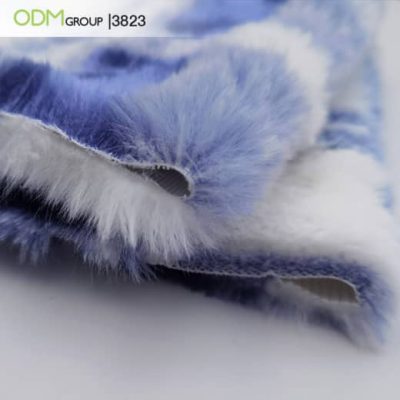
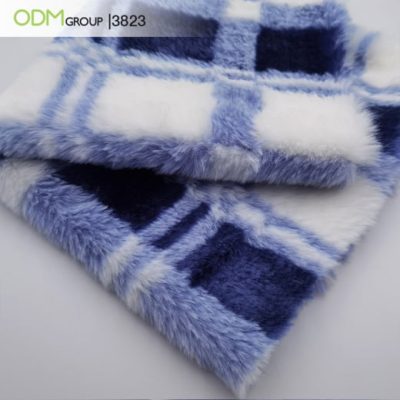
This plush fabric is knitted and windproof bringing innovation to the green-fashion industry.
Products created from soft recycled polyester faux fabric signify a dedication to green practices.
This multi-functional recycled fabric is perfect for various applications and design needs in the home decor or fashion industry. Preferably used for blankets and pillowcases, this material stands out as the ideal choice for creating cozy essentials. Furthermore, ideal for fashion coats, this faux fabric complements the automotive industry, making it versatile for various applications.
Besides, exploring Recycled Faux Fabric emphasizes its positive impact. This sustainable material, widely used in fashion, embodies eco-conscious values. Choosing Recycled Faux Fabric signals commitment to eco-friendly practices, enhancing brand sustainability through stylish, durable, and green products.
For a green fashion revolution, embrace recycled faux fabric in your next design project! Product Code: ODM– 3823
2. Customised Eco-friendly Puffer Tote Bag
Embarking on an eco-friendly journey, envision a custom-designed puffer tote crafted from sustainable materials, revolutionizing your daily carry.
Intricately designed from nylon and cotton filling or polyester to cater to modern lifestyles, making them both lightweight and durable.
Designed for softness, portability, and waterproof functionality, these versatile bags cater to travel, commuting, or everyday needs. Available in various styles and sizes, they suit everyone. The unique customizable feature transforms them into an ideal branding tool for businesses.
These renewed polyester custom-designed tote bags transcend mere aesthetics, offering weather protection, ample storage, and effective brand promotion. It is undeniable that their versatility allows easy customization, enhancing brand identity across various styles and occasions. The durable material subsequently ensures prolonged use, creating lasting brand impressions and excellent value for money, amplifying brand exposure.
Join the eco-friendly fashion movement by incorporating recycled faux fabric into your upcoming design endeavors! Product Code: ODM– 4588
Businesses are increasingly choosing recycled polyester for corporate apparel, uniforms, and promotional items due to its sustainability advantages. This approach aligns with sustainability goals and presents a cohesive and responsible brand image.
3. Personalised Collapsible Polyester Bags:
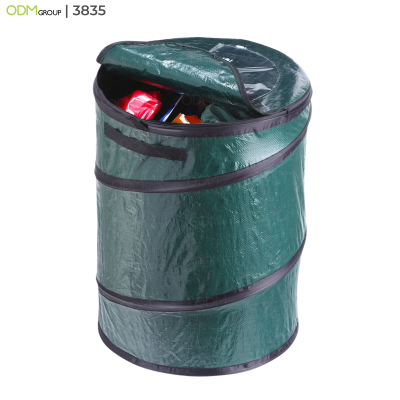
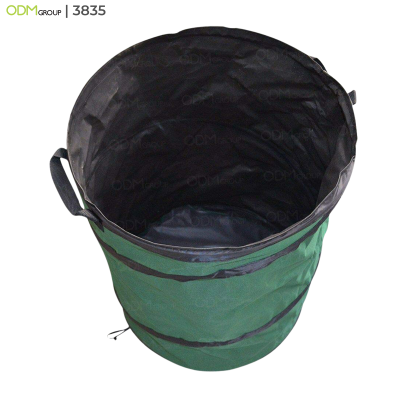
These custom polyester bags embody sustainability and innovation.
Crafted from recycled soft polyester, this item ensures a soft, skin-friendly, and comfortable user experience
With a commitment to eco-friendliness, they cater to diverse styles and age groups. Their versatile design makes them suitable for men, women, teens, and children, aligning with a sustainable lifestyle. Moreover, the bags combine functionality with high-quality materials, offering durability and eco-friendliness.
Elevate your promotional campaigns by choosing these collapsible bags that seamlessly merge style, comfort, and sustainability.
For a green summer promotion, these collapsible polyester bags: ideas are the top choice to elevate your campaign! Product Code: ODM– 3835
In a nutshell: Weaving a Sustainable Future
In the dynamic sustainability arena, businesses actively adopting recycled polyester make a tangible and impactful choice. Reducing environmental impact and fostering consumer trust, adopting recycled polyester resonates with the values of the modern business world.
Planet-Friendly Related Blog Posts
An array of eco-friendly promotional products, emphasising sustainable items and illustrating their benefits for businesses adopting environmentally conscious marketing strategies.
Concentrating on sustainable marketing strategies, highlighting their efficacy for businesses aiming to align promotional efforts with environmental consciousness.
Emphasising various sustainable stationery products and offering insights into utilising them for eco-friendly promotional campaigns.
A diverse range of promotional items designed for the automotive sector, highlighting their effectiveness in marketing and branding initiatives.
Frequently Asked Questions
What are the Customisation Options for Recycled Polyester Products?
Recycled polyester offers versatile customization possibilities, allowing businesses to design and tailor products to meet their unique branding and aesthetic preferences. From color variations to specific fabric textures, customization empowers businesses to align recycled polyester products with their distinct identity.
Are There Design Trends Specifically Associated with Recycled Polyester?
Yes, the design landscape for recycled polyester is evolving with a focus on sustainability. Current trends include minimalist designs, eco-friendly motifs, and creative use of textures that highlight the recycled nature of the material. Staying updated on these trends allows businesses to create products that appeal to contemporary consumer preferences.
How Does Design Enhance the Appeal of Recycled Polyester in Marketing?
Thoughtfully designed recycled polyester products contribute to a business's commitment to sustainability and enhance its appeal in marketing efforts. Incorporating engaging designs in promotional materials or product packaging helps businesses communicate their eco-friendly values effectively, attracting environmentally conscious consumers.
